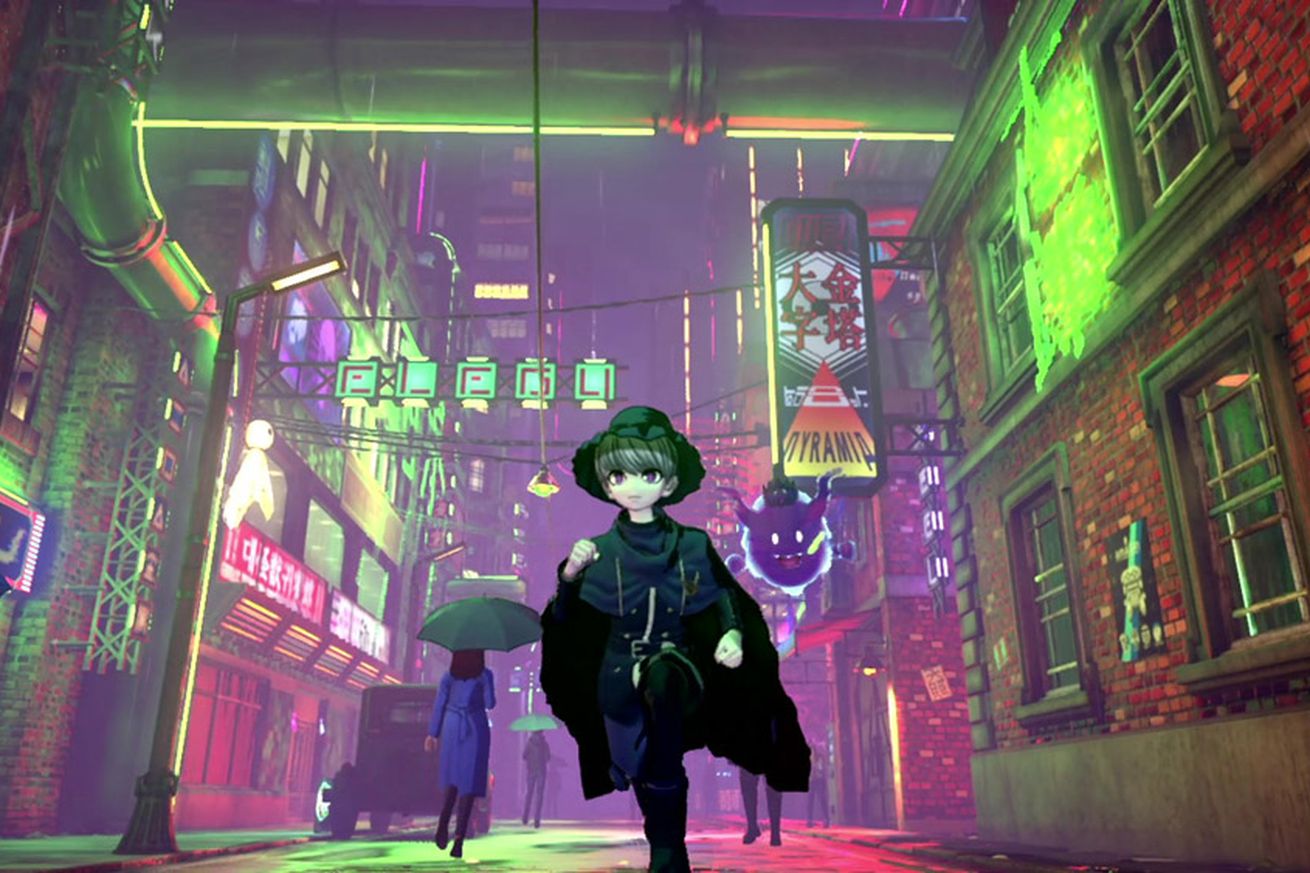
Danganronpa’s creator wants to make detective games more approachable
While detective stories are a mainstay in the worlds of film, television, and literature, they’re comparatively niche when it comes to video games. And with a few notable exceptions, the most beloved detective games tend to be visual novels. Kazutaka Kodaka loves detective stories and is best known for the dark adventure series Danganronpa. But for his studio’s next project, Master Detective Archives: Rain Code, he decided to take things in a slightly different direction. “Mystery games tend to be dull because it’s mostly reading text,” Kodaka says. “But for this we created a world where you can solve various kinds of mysteries and roam around freely.”
Rain Code is described as a “lucid-noir” detective game. It takes place in a sort of cyberpunk city called Kanai Ward, which is rendered as a 3D world where it never seems to stop raining. Players take on the role of an amnesiac sleuth solving mysteries throughout the city as part of a global detective group. Aside from having various locations to explore, there are a few other things that should make Rain Code feel different from other detective games. For one thing, you’ll partner up with other detectives who have special powers that just so happen to be useful for solving crimes: one can rewind time and another can visualize how a crime scene looked at the moment it was discovered.
Then there’s the way the game is structured. Like in most mystery titles, you start by gathering clues. But once that’s done, you’ll proceed to a Mystery Labyrinth, which is a kind of visual representation of the crime in question, complete with traps to avoid and puzzles to solve. There are even bosses, called Mystery Phantoms, which you battle by using something called a “solution blade” to slice through contradictions using all of the evidence you’ve gathered. The concept is reminiscent of the palaces in Persona 5, a physical representation of something more abstract — in this case, tied to specific unsolved crimes.
One of the goals of the game, Kodaka says, is to make these kinds of mysteries more accessible. Detective games can often be frustrating, as it’s easy to hit points where you’ve missed something small, whether it’s a clue or a contradiction, that completely halts your progress. In addition to the special detective powers, Rain Code is trying to get around this with a robust hint system. “If you get stuck, more hints will pop up,” Kodaka explains, noting that he doesn’t think this will ruin the satisfaction of solving a mystery. “Even though it gives you hints, and it might be easy to solve the mystery’s questions, players will still have to think more about who the culprit is and what the next problem will be.”
These features — the 3D world, the more active mystery solving, the hints — aren’t just there to be different, although they do make Rain Code look and feel distinct. Instead, they’re designed to make a genre that can often be difficult to translate to games into something anyone can play. “If other mystery games are more like a novel, Rain Code is more like a drama or a movie,” Kodaka says. “So people who aren’t really into mysteries, or don’t have a lot of experience with mystery games, they’re able to have more fun with it.”
Master Detective Archives: Rain Code launches on the Nintendo Switch on June 30th.

